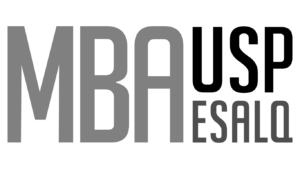The pandemic accelerated processes worldwide, and made the challenges and opportunities of the new economy appear faster than expected. However, the term “new economy” is not something that new, but has gained new approaches in the last months.
Anderson Pellegrino, speaker and MBA professor in Business Management USP/Esalq, talked about the subject from two approaches that have been around for some years and that gained strength and space in the discussions recently: behavioral economy and platform economy. Check it out!
An overview of the challenges and opportunities of the new economy
Before we start this conversation, we need to understand what economic approaches have gained strength in the face of the challenges imposed by the pandemic, especially in the economic aspect.
For Pellegrino, many institutions have suffered a considerable drop in their numbers. “Many companies are suffering the consequences and living the sequels of the moment of crisis generated by the pandemic.”
Still, according to consolidated information of the IMF’s global economy (International Monetary Fund) in the United States, for example, there was a drop in GDP (Gross Domestic Product) in 2020, to 3.5%, and this index had a 7% growth in 2021 and a 4.9% forecast for the next year. Now, what is the reason for this return and growth of GDP?
According to the professor, the new administration given by the team of the current president Joe Biden and his economic plan were ambitious strategies and very well-seen by the market.
“Everything is summed up in creating a low-carbon economy in the medium term, and releasing aid for recovery due to the pandemic, in the short term, which involves the aid for the reopening of schools, financial aid to families in a state of vulnerability and the digitalization of the economy”, he explains.
Thus, there is an optimistic vision of growth for the next year. Besides, with the impacts of the crisis, two trends gained strength:
- The need for full assimilation of digital transformation in the corporate world, which ensures that the digital came to build a new reality.
- The need for valuation by companies of decision-making processes and experiences in the act of consumption, which shows a trend with more focus on the client and less focus on the product itself.
“What matters is to put yourself inside the mind of the client… It is almost an exercise of empathy in the consumer relationship. Now, in the scenario of the pandemic, many companies survived by the proximity they have or have always had with their customers”, analyzes Pellegrino.
Behavioral economy
Now, knowing a little more about the current conjuncture and about the challenges and opportunities of the new economy, we can talk about the two approaches cited previously by the professor, starting with behavioral economy.
It considers that humans make decisions based on their emotions, thinking about themselves and others around them, with the impact of the moment in which they live, tending not to be completely rational.
“These are processes of choosing the architecture of decisions. And it sees these processes as complex, since they respond to mental habits and triggers of each individual and of the experienced moment. The idea of behavioral economy is precisely to reduce the gap between intention, action and result, and the focus of the approach is to alter the architecture of choice by leading people to better choices”, explains the professor.
Platform economy
About the second economic approach, the professor explains how platform economy works. “The idea of a platform is actually a set of technologies and layers of software that can help us develop processes, applications and tools in the business world.”
Pellegrino also explains that these platforms come together, through technologies, companies and consumers, in such a way that they revolutionized the current market. Still, these platforms need the interaction of both parties and, for this to happen, three factors are essential:
- Value units: products, services etc.
- Participants: companies and consumers
- Filters: algorithms that allow this relationship between the parts, combining opinions, criticisms and desires within the platform
Did you like to learn about the challenges and opportunities of the new economy? Then register for the MBA USP/Esalq in Business Management and take advantage of more classes and lectures like these!

